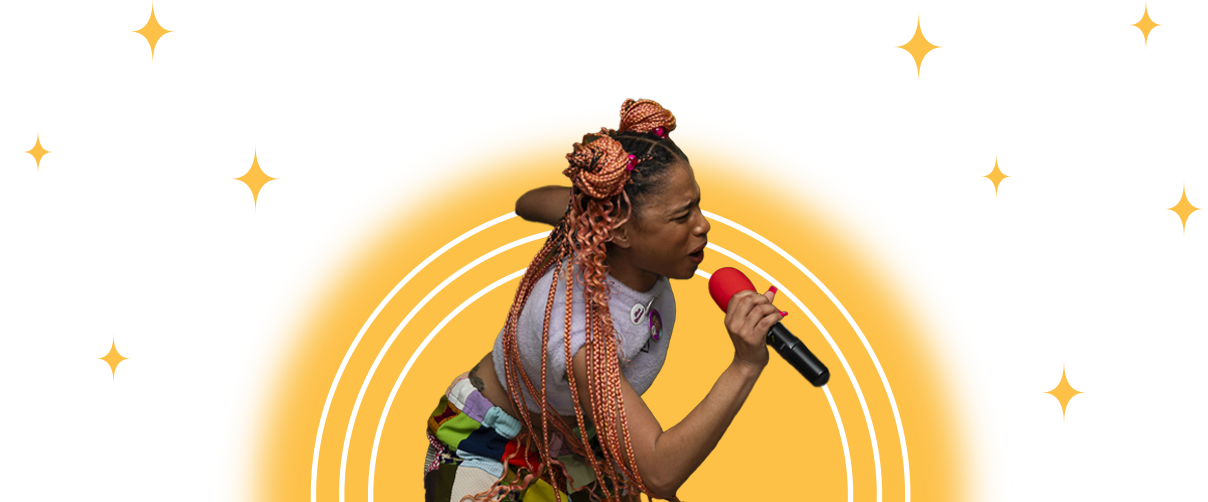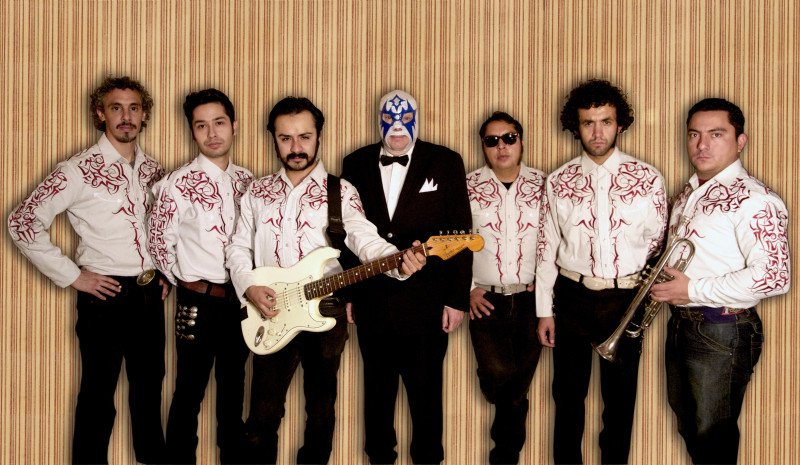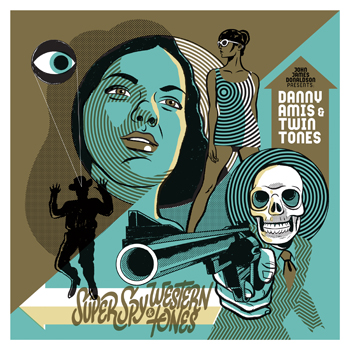The beautifully produced instrumental collection is a bold soundtrack of primal twang, moody reverb and the six-string sound of the spaghetti West, songs written mostly by Amis that are as evocative of time and place as they are catchy.
“For a whole generation, mine and the one after, the guitar-playing style of Danny Amis was a huge influence,” continues Lopez. “I think it's a sound that a lot of Mexican bands consciously and unconsciously adopted.”
Born in Memphis, Amis grew up in Minneapolis, where he got his first exposure to the music that would pattern his life. “When I was a little kid my older brother had all the Ventures records and Link Wray and Duane Eddy records,” he says. “I just grew up with that as my definition of what an electric guitar should sound like.”
By the late ‘70s, Amis was leading his first instrumental band, The Overtones, before heading to New York in 1980 to join the seminal surf combo The Raybeats. His next move was to Nashville, where he worked for the Grand Ole Opry as an audio engineer and, briefly, for a late incarnation of “Hee Haw.”
“It was excruciating,” Amis recalls. “Fourteen takes of the same joke.”
In 1989 he took a fateful trip south of the border, one that would spark an ongoing passion for Mexico. “First time I went down I was just looking for some sort of an adventure,” Amis says. “I took a bus down to Chihuahua. I had heard some Mexican rock and roll stuff, and I wanted to look for some of that, so I went to a record store. I not only found that, but I found a lot of new bands from Mexico City that were just dynamite. I felt at home right away and I knew I wouldn’t be able to stay away, so I’ve been going back pretty regularly ever since.”
In 1994 Amis co-founded Los Straitjackets, and it wasn’t long before bootleg copies of the group’s music began filtering into Mexico. The ingredients were ripe for popularity. The band all wore Lucha Libre masks, the music was fun, festive and powerful, and translation was not an issue. There were no lyrics.
Initially, however, Amis admits concern that the masks might have been viewed as culturally insensitive. “We had that fear a little but it was the opposite,” he says. “They were flattered that an American band would find elements of their culture really cool and really hip, which we do, and they just didn’t expect that. It touched a nerve down there, and then a whole music scene.”
Amis befriended one of the first groups in that scene, Lost Acapulco, and produced its hit debut album in 1998.
“When you have a chemical music thing it’s very easy to play and to do music, and that’s what happened with Danny and Lost Acapulco,” says Caleb Franco, aka Senor Ramirez, the band’s bassist. “We are big fans of Los Straitjackets as well. There’s so much influence for us. Of course, they wear wrestling masks, which is really good for Mexicans, but I think the crowd in Mexico likes their music so much [because] it’s so clear, so clean and super fantastic.”
The popularity of the Lost Acapulco album paved the way for Los Straitjackets to cross the border. “Because it was such a huge hit everybody wanted to know more about me and Los Straitjackets, so we finally went down and did a couple of shows in Mexico City and Guadalajara,” Amis says. “It was amazing the response we got.”
Bear in mind, we’re talking about a group that draws on the average “a couple hundred” folks to gigs in America. Last fall, Amis and his masked men attracted a frenzied audience of 50,000 to Mexico City’s Foro Sol arena -- two nights in a row.
“It’s huge! What he’s got going on down there is huge and really unbelievable,” says musician Ben Vaughn. He produced Los Straitjackets’ first three albums and has known Amis since 1983. “It’s a mystery to me, but it also makes sense, mainly because it’s Danny Amis. He’s a visionary and he doesn’t question his motives. He just follows whatever he’s excited about.”
Amis also takes Daddy-O Grande very seriously.
“He never takes the mask off when he’s down there,” Vaughn reveals. “He goes out to dinner, after sound check, keeps it on. He’s very dedicated to Daddy-O Grande, and they love him down there. He’s the right guy, and Los Straitjackets are the right band. It’s a really interesting phenomenon.”
While Amis was in Mexico City last year, he joined forces with the Twin Tones, spending a week in the band’s studio recording, Super Spy Western Tones. A successful Kickstarter campaign helped fund the project.
“This album is more than a collaboration between Danny and Los Twin Tones,” offers Vaughn. “It’s actually more cinematic almost, because of the orchestration and the horns and the strings, and the elements of film music dramatics and melodies. It has a sweeping larger feel than a standard instrumental record.”
The international project was hatched years ago, but was shelved when Amis hit a major, and very unexpected, road bump.
“We had talked about doing some recording together, but of course everything got put on hold when I got cancer,” Amis says. “I had a stem cell transplant to treat multiple myeloma. It got everything under control. I’m not technically in remission, but I’m doing OK, so last year we finally got together and made it happen.”
While he still records with Los Straitjackets, he no longer tours with the band, leaving him free to leave California for the land that he loves where his music is king, and he is the godfather.



